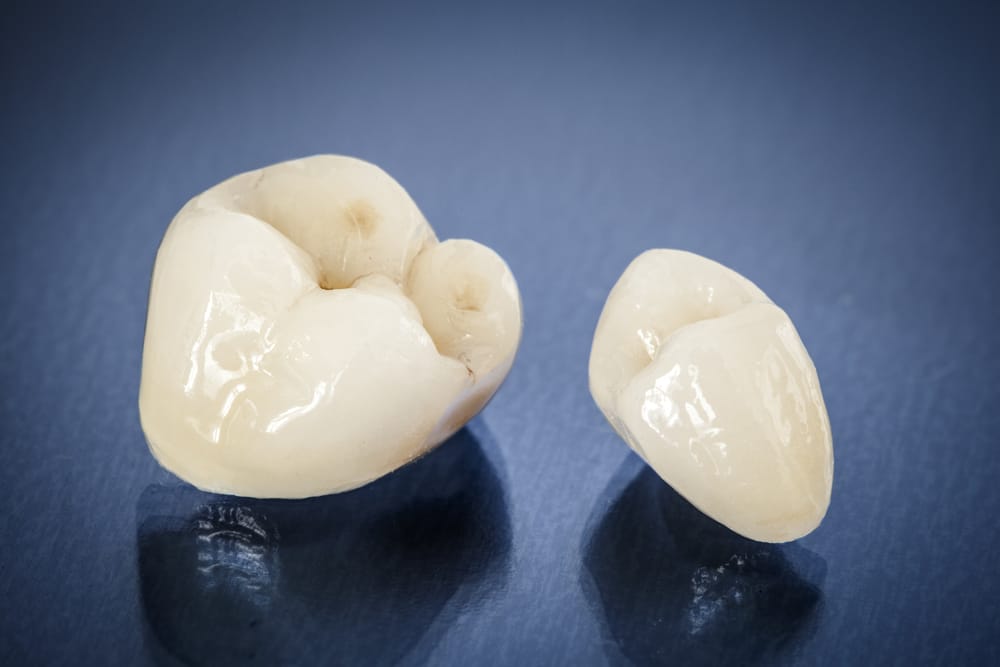
It’s rare that anyone is born with a perfect set of teeth. Either when you are a child or once you become an adult, some of your teeth may be or become problematic. Decay or infection from bacteria or improper care can occur inside teeth, which can be painful. If a simple dental cleaning can’t treat a bad tooth, may suggest a crown to protect it. Here’s what the process might involve.
What is a Dental Crown
It’s a false tooth (cap or cover) that fits over an existing tooth that is in a state of decay and reinforces it, so a patient can eat as they always do without worry of pain, further decay, or infection. Crowns are usually cemented in place and align with a patient’s existing teeth.
If the tooth is in bad condition, it might need to be removed and a dental implant inserted in its place, which will adapt to the bone, then a device known as an “abutment” is installed. The false tooth is then fitted and placed over it.
Who Are Crowns for and Why Are They Needed
Anyone, from a child to an adult, is a potential candidate for receiving a crown. The reasons crowns are needed, however, can vary. Other than their use to protect a decaying or brittle tooth, crowns are used for the following reasons:
- A replacement for a broken tooth or for a tooth that is worn down and is open to infection.
- As a support for a tooth with fillings, especially if there’s not much left of the tooth.
- To support a dental bridge or cover misshapen or discolored teeth.
- To hide a dental implant or for cosmetic reasons
- For children, a crown might replace a tooth with such advanced decay, a filling wouldn’t be of any benefit, or if the child is at high risk of tooth decay because of improper dental hygiene.
One of the most common reasons for a crown is a cracked tooth. If the crack extends beyond the gumline, a root canal might be needed. But sometimes what appears to be a cracked tooth is just a “craze,” which are stress lines in the tooth and are very common but not harmful. In this case, a root canal wouldn’t be needed.
What are the Advantages & Disadvantages of Dental Crowns or Implants
Dental Implants, if needed, can last a lifetime and are made of titanium, so the chances of further decay are either minimal or non-existent. However, there is a risk of infection, swelling, and pain. Grafting may be needed if there isn’t existing bone on which to place the implant.
Crowns, on the other hand, completely cover the tooth and are made from metals like gold, chromium, nickel, stainless steel, porcelain, and resin. Stainless steel crowns are prefabricated and are considered temporary. They are most often used for the teeth of children. Resin is a cheap alternative to metal or porcelain crowns and has the tendency to crack, which means they will need to be replaced more often. Porcelain crowns can last 15 – 20 years and gold or other metal crowns can last 30 to 50 years.
Porcelain won’t wear out or change as other teeth do over time, so the false tooth could make chewing and biting uncomfortable. Metal crowns will wear at the same rate as other teeth. But for whatever crown choice, there is still the possibility for further decay or infection from bacteria.
What’s the Tooth Preparation for a Crown: Two Office Visits
The preparation surrounding installation of a crown is dependent on the health of the tooth that is being treated. In most cases, a dentist will require two office visits. On the first visit, the dentist will x-ray the tooth for decay, infection, or even injury. If the tooth is in a state of heavy decay, a root canal may be needed.
If the tooth is okay, the dentist will file it down to make room for the crown. If it is misshapen or some of it is missing, a dentist may use material on the tooth to support the crown. Lastly, he will take an impression of the tooth with a putty, paste, or with a digital scanner, which includes impressions of teeth above and below so bite won’t be affected, then install a temporary crown.
On the second office visit, the temporary crown is removed, then the fit of the permanent crown is checked. If that is fine, then the dentist will numb the tooth and install the crown with cement.
How to Maintain and Care for Crowns
After a crown has been installed, caring for it is the same as caring for permanent teeth. Proper brushing and flossing on a daily basis are really all that is needed. It takes around two hours for the crown to feel like a natural fixture in your mouth after installation. But if your crown is just temporary, chew on the other side of your mouth, avoid sticky or hard foods, and slide rather than lift floss when cleaning between teeth to avoid pulling the crown off.
Do you have a bad tooth that is nagging you and you have questions about crowns or implants? Schedule an appointment with Riverside Dental Care to put your mind at ease.



Leave a Reply